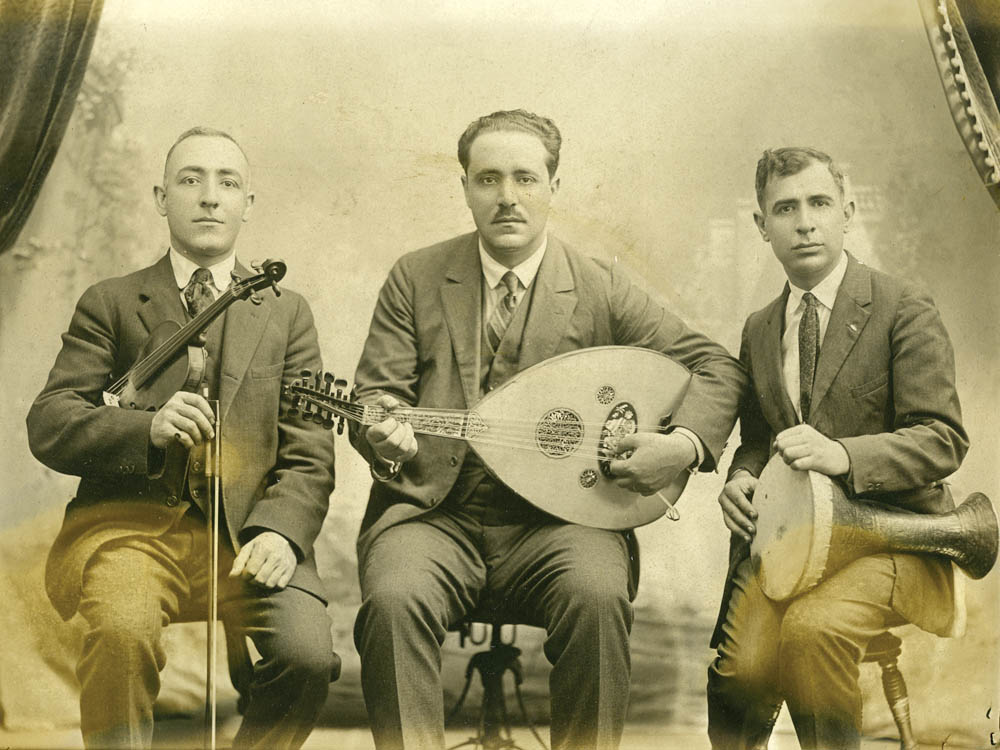
Staff Report
We digitized, now what? To answer that question, the Armenian Studies Program (ASP) was recently awarded a grant from California Revealed, a California State Library initiative, which will facilitate making the Program’s digitized collection of local Armenian-American music available online to the public.
The grant supports processing and cataloging the materials collected during the public memory event, “Armenian-American Musical Heritage of the San Joaquin Valley” held this past February 29, 2020. The collection contains fascinating and valuable primary source documentation of the local production of Armenian-American music in the San Joaquin Valley during the 20th century. It covers musicians, local recording labels, musical venues, and area purveyors of records and phonographs. Included are historic photographs of Armenian-American musicians and performances; promotional materials and advertisements for musicians and concert venues; catalogs from locally-produced record labels and sheet music.
Cataloging work is not glamorous, but it is essential for the use and discoverability of collections. A catalog connects the individual items of a collection to the outside public. For example, providing pertinent descriptions of a photograph such as the one depicted accompanying this article, can elicit a variety of research uses. This is especially true for a collection such the ASP’s Armenian-American Musical Heritage of the San Joaquin Valley. A family historian might search by name to find a treasured image of a relative who was a local dumbeg player; a social historian might be interested in the traditions of kef bands at Armenian weddings; a folk musician, the mixing of heritages illustrated by the range of instruments brought together for a performance. A good description will allow each of these researchers to find what they are looking for when they search the catalog.
The California Revealed grant allows the Armenian Studies Program to integrate materials gathered from the public event into a searchable database. Event participants contributed nearly 150 scans of photographs and memorabilia relating to local music production, providing details of people, places and events on written forms. Community members also loaned over-sized items that could not be digitized on site, including a collection of sheet music by Prof. Krikor Kalfayan (Prof. Kalfayan), to be digitized and returned.
Archivist Malina Zakian created a database catalog entry for each of the digital scans, and entered the descriptive information from the participants’ written forms. Most significantly for the collection, Zakian also incorporated relevant search terms to aid finding the images and documents online. These archival materials contextualize another of the Program’s resources, a collection of locally-produced 78-rpm recordings from the Armenian-American diaspora. Work to catalog the 78s was supported through a grant from the Grammy Foundation, and the Program is currently investigating ways of making these audio resources available online.
Now that the catalog is complete, the Armenian Studies Program is positioned to further collaborate with California Revealed and the State Library, to digitize the oversized materials and to host the ASP Armenian-American music collection online for public access. The role of collaboration with the State Library is particularly important in preserving the digital content and better assures that these materials will be available for years in the future. The digitized materials will be published for public access to Calisphere, a service of the University of California libraries and gateway to digital collections from California libraries, archives and museums.
About California Revealed:
California Revealed is a State Library initiative to help California’s public libraries, in partnership with other local heritage groups, digitize, preserve, and provide online access to archival materials—books, newspapers, photographs, audiovisual recordings, and more—that tell the incredible stories of the Golden State.
 Hye Sharzhoom Armenian Action
Hye Sharzhoom Armenian Action